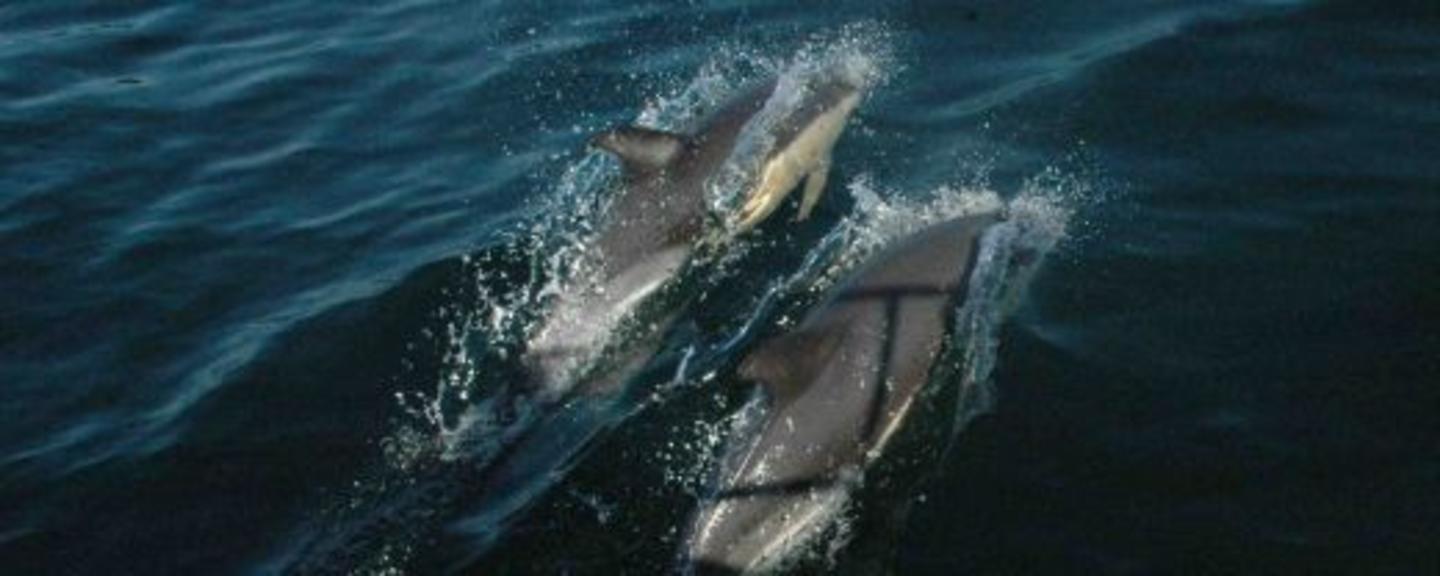From the central part of Portugal to the border with Galicia you will find a region which is very important for the Atlantic cetacean (whales, dolphins, porpoises) populations. Unfortunately, every day, one or two cetaceans become the victims of fishermen’s nets, adding up to 500-700 per year. Around 100 of these end up dead or badly injured on the shores and beaches of the northern coast of Portugal.
Common dolphins, harbour porpoise, striped dolphins, pilot whales and minke whales suffer from by-catch. “The situation is especially critical for the harbour porpoise. With maybe less than 1000 such animals in our coasts, this specie is in high risk of extinction. Any measure to reduce their death rate is therefore of great importance,” says Professor José Vingada of the Univeristy of Minho.
The University of Minho has joined forces with two Portuguese fishermen’s associations, a Galician ONG (CEMMA) and the Institute of Marine Research of the University of Oslo, in a project to reduce the by-catch rate by 30-50% within a few years. Before starting the project, Portuguese authorities believed that only 30% of stranded cetaceans were victims of by-catch. Minho University PhD students have proved that the actual rate must be around 60%. Reducing by-catch would be an important contribution to maintain strong and viable cetaceans populations in the Portuguese coasts.
Cetaceans navigate mostly on the basis of sounds, and often get caught up in fishing nets because they give little echo and therefore are difficult to “see”. The project will test so-called “pingers”, named for their “pinging”-sound, which will be placed in the fishing nets (mainly gillnets) to emit warning sounds. In addition, acoustic nets covered with a chemical element called barium, in order to enhance acoustic visibility, will be tested.
Some might expect that fishermen would be afraid to imposed new and expensive equipment, and therefore be sceptical to such a project. However, a new generation of fishermen with a better formation is contributing to a more positive attitude towards these conservation questions than before.
“When we tried similar actions only seven years ago, we were unable to establish a positive dialogue with the fishing community. We were therefore surprised to see that today’s fishermen are very positive to the project, cooperating and giving us all the information we wish for. This is a positive sign for the future,” says Professor Vingada.
The new equipment will be ready for testing from early next year. More knowledge about how this equipment works should lead the way to Portuguese implementation of EU-legislation making such equipment obligatory. This should lead to a safer environment for the dolphins, porpoises and whales off the coast of Portugal.
News
16.10.2012
Outside the beautiful and spectacular coast of Portugal, dolphins get injured and die in fishermen’s net due to by-catch incidents. With the help of EEA and Norway Grants, researchers and fishermen are now working together to solve the problem.

PT0039 dolphins.jpg